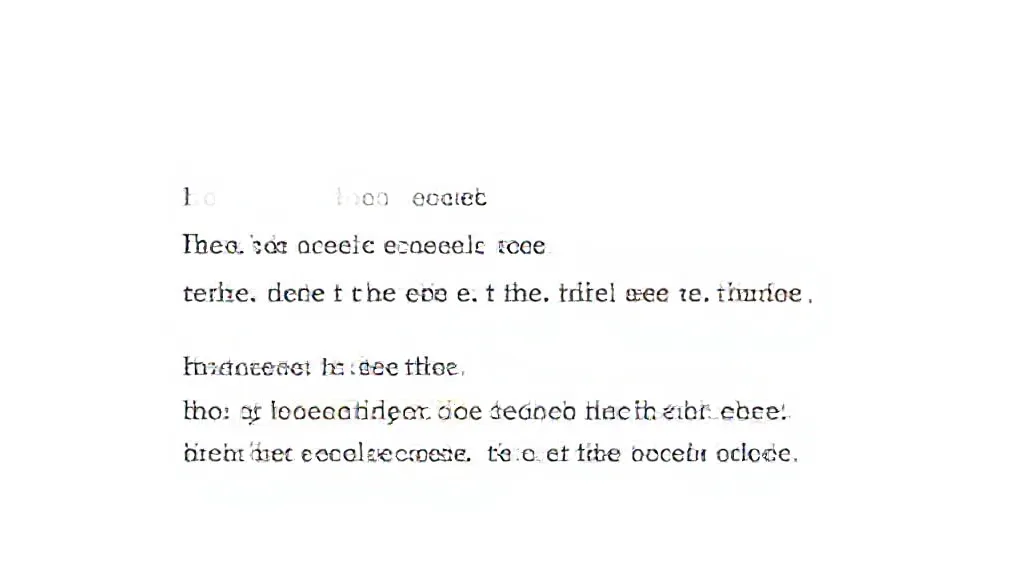In the realm of effective communication, sentence clarity is paramount. It ensures that the intended message is conveyed without ambiguity or confusion. One of the foundational elements that contribute to sentence clarity is grammar.
Grammar serves as the framework that organizes words and phrases into coherent structures, allowing readers and listeners to grasp the meaning effortlessly. Understanding how grammar influences sentence clarity is essential for anyone looking to improve their writing or speaking skills.
The Foundation of Grammar and Clarity
Grammar consists of rules and conventions that govern the structure of sentences.
These rules dictate how words combine to form phrases, clauses, and ultimately sentences. When grammar is applied correctly, it enhances clarity by providing a predictable structure that readers can follow. For instance, consider the difference between the sentences "The dog chased the cat" and "Chased the cat the dog.
" The former is grammatically correct and clear, while the latter, though it contains the same words, is jumbled and confusing. This illustrates that adherence to grammatical norms directly impacts the clarity of communication.
The Importance of Punctuation
Punctuation is a crucial aspect of grammar that significantly affects sentence clarity.
Commas, periods, question marks, and other punctuation marks serve as signals to the reader, indicating pauses, stops, and the relationships between ideas. For example, the sentence "Let's eat, Grandma!" conveys a friendly invitation, while "Let's eat Grandma!" suggests something far more sinister. The placement of just a comma changes the entire meaning of the sentence, highlighting how punctuation is an integral part of grammatical structure that aids in clarity.
Syntax and Sentence Structure
Syntax refers to the arrangement of words and phrases to create well-formed sentences. Different languages have varying syntactic rules, but in English, a standard sentence follows a Subject-Verb-Object structure. Deviating from this structure can lead to confusion.
For instance, "The teacher gave the students homework" is clear, while "Gave the students homework the teacher" is not. Proper syntax ensures that the reader can easily identify the subject and the action, which is vital for understanding the overall message.
The Role of Word Choice in Clarity
Grammar also encompasses the choice of words, which can greatly affect clarity.
Using precise vocabulary enhances understanding and reduces ambiguity. For example, the word "walk" is less specific than "amble," "stroll," or "march." Choosing the right word based on the context can clarify the intended meaning.
Additionally, avoiding jargon or overly complex language is crucial for maintaining clarity, especially when communicating with a diverse audience.
Active vs. Passive Voice
The choice between active and passive voice is another grammatical consideration that impacts clarity.
Active voice ("The chef cooked the meal") is generally more straightforward and easier to understand than passive voice ("The meal was cooked by the chef"). Active voice typically results in more engaging and clearer sentences, making it a preferred choice in most writing situations. Understanding when to use each voice can enhance the effectiveness of communication.
The Historical Perspective on Grammar and Clarity
Historically, the study of grammar has evolved over centuries, with significant contributions from scholars such as Noam Chomsky and Ferdinand de Saussure. Their theories have shaped our understanding of language structure and its importance in communication. The evolution of grammar reflects society's changing communication needs, emphasizing the ongoing relevance of grammatical rules in maintaining sentence clarity.
Practical Tips for Enhancing Sentence Clarity
To improve sentence clarity through grammar, writers should prioritize simplicity and coherence. This can be achieved by using shorter sentences, avoiding unnecessary jargon, and ensuring proper punctuation. Additionally, revising sentences for grammatical accuracy can significantly enhance clarity.
Reading aloud can also help identify awkward constructions that may confuse readers.
Conclusion: The Interdependence of Grammar and Clarity
In conclusion, sentence clarity is heavily reliant on proper grammar usage. The rules of grammar provide a necessary structure that allows for effective communication.
By understanding the role of grammar, punctuation, syntax, word choice, and voice, individuals can enhance their writing and speaking skills, ensuring their messages are clear and comprehensible. Mastery of grammar not only improves clarity but also enriches the overall quality of communication, making it an essential focus for educators and learners alike.
